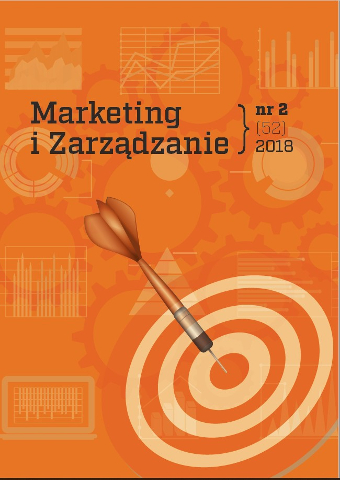
ISSN: 2450-775X
OAI
DOI: 10.18276/miz.2018.52-08


Issue archive /
nr 2 (52) 2018
Content marketing w aspekcie ewolucji funkcji internetu i rozwoju koncepcji marketingu
(Content Marketing in the Aspect of the Evolution of Internet Function and the Development of Marketing Concept)
| Authors: |
Krystyna
Mazurek-Łopacińska
Uniwersytet Ekonomiczny we Wrocławiu, Wydział Nauk Ekonomicznych Magdalena Sobocińska Uniwersytet Ekonomiczny we Wrocławiu, Wydział Nauk Ekonomicznych |
| Keywords: | content marketing e-marketing inbound marketing social media |
| Data publikacji całości: | 2018 |
| Page range: | 10 (83-92) |
| Klasyfikacja JEL: | M15 M30 |
Abstract
Growing extent of social life virtualisation results in the fact that effective and efficient tools of internet marketing are searched for. They include content marketing, the significance of which is increasing especially in the context of occurring changes in internet users’ behaviours, who more and more frequently ignore advertising communications. The objective of the article is to show the essence of the content marketing and its tools in the context of changes of internet function and the development of the marketing concept. The article presents the objectives of content marketing. The necessity of long-term character of this type of activities is emphasised and the stages of content marketing strategy are presented. The article is prepared on the basis of the review of the literature and research reports, as well as case studies. Deliberations and analyses conducted in the paper indicate that the creation of the content that is attractive and valuable for an internet user requires a very good knowledge about the needs and behaviours of the recipients of communication as well as changing algorithms of internet browsers.
Download file
Article file
Bibliography
| 1. | Błażewicz, G. (2016). Rewolucja z marketing automation. Jak wykorzystać potencjał Big Data. Warszawa: Wydawnictwo Naukowe PWN. |
| 2. | Bruns, A. (2008). Blogs, wikipedia, second life, and beyond. from production to produsage. New York: Peter Lang. |
| 3. | Chaffey, D. (2016). Digital business i e-commerce management. Strategia, realizacja, praktyka. Warszawa: Wydawnictwo Naukowe PWN. |
| 4. | Dietrich, G. (2015). Spin Sucks: communication and reputation management in the digital age. Indianapolis: Pearson Education. |
| 5. | Kaplan, A.M., Haenlein, M. (2010). Users of the World, Unite! The Challenges and Opportunities of Social Media. Business Horizons, 53 (1) 59‒68. |
| 6. | Kotler, Ph., Kartajaya, H., Setiawan, I. (2016). Marketing 4.0: Moving from Traditional to Digital Hardcover. Hoboken: John Wiley & Sons. |
| 7. | Lieb, R., Szymanski, J. (2017). Content – the atomic particle of marketing: the definitive guide to content marketing strategy. London: Kogan Page. |
| 8. | Ludwiński, M., Miller, G., Albińska, M., Apitz, M., Jedrachowicz, K., Nowak, A. (2018). Kiedy content zamiast reklamy. Marketing w Praktyce, 2. |
| 9. | Stwarz, B. (2015). Content marketing po polsku. Jak przyciągać klientów. Warszawa: Wydawnictwo Naukowe PWN. |
| 10. | Tobiasz, M., Szymański, W. (2018). Content marketing. W: G. Mazurek (red.), E-Marketing. Planowanie, narzędzia, praktyka. Warszawa: Poltext. |
| 11. | Vescovi, T., Gazzola, P., Checchinato, F. (2010). Invading customers. New market relationships. Journal of Marketing Trends, 1, 41‒57. |
| 12. | Żabiński, L. (2007). Koncepcje marketingu a praktyki zarządzania. Istota, sposoby identyfikacji, systematyka. W: T. Żabińska, L. Żabiński (red.), Zarządzanie marketingowe. Koncepcje marketingu a praktyki zarządzania. Aspekty teoretyczne i badawcze. Katowice: Wydawnictwo Akademii Ekonomicznej. |